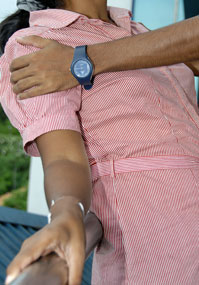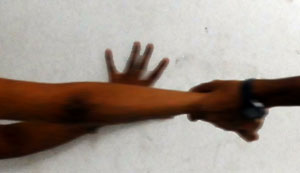When can possessiveness cross over to control, advise cross over to orders, and intimacy cross over to rape?
Romantic and intimate relationships are supposed to be built upon love and respect.
Unfortunately, some relationships are not. What might have started off as childhood sweethearts finally falling in love, might end up in a situation where it's sustained not by love, but by power and control, and sometimes even violence.
Relationship abuse can be defined as the unfair use of power by one party in the relationship with the intention of causing distress, or executing control over the other person. Abuse in relationships is an issue that is often unspoken of. And as the case with most instances of abuse, it's either camouflaged with love, or is justified by the abuser.
It can be in the form of social abuse, where the social interactions of one person are forced to be limited. Statements like "I don't want you to meet those people, and I'm saying this because I love you", or "If you love me, you won't hang out with her anymore", can be subtle ways of exerting social control. It's often with the intention of breaking off external social links to ensure dependency on the abusive partner. If you find yourself interacting less with your social networks, or if you feel your friends are doing so due to pressure from their partners, then you should take time to think about what's happening.
Verbal abuse can be something that it not so visible. It can range from outright "telling offs" with swearing and raised voices, to "bugging" sessions which can be emotionally distressing. But an even more invisible form of violence, it emotional abuse. Emotional abuse can take the forms of withholding love, breaking trust, and frequent spells of unreasonable jealousy or suspicion. It can be summed up as methods used to make the partner feel powerless, worthless, insecure and afraid.
But one of the most damaging and harmful ways of inflicting pain and distress upon partners, is physical abuse. It can be in the form of sexual abuse or actual physical violence. Sexual abuse is basically any non-consensual sexual activity. Sometimes social abuse is used to gain dependency, and when the partner is completely under the abuser's "control", the spell of sexual violence may begin. "Emotional blackmail" might be used to gain the consent of the partner. The other aspect of physical abuse is violence. It can be in the forms of direct violence, such as kicking, punching and slapping. Kicking and punching walls with the threat of actual violence, can also be categorized under abuse. Sometimes partners may be "punished" for doing "wrong" and making the abuser angry.
If your partner is unreasonably and overtly protective over you and tries to control your actions and movement, or if you have found yourself changing your behavior to keep your partner from getting angry at you, or fear violent behavior from your partner, then you might be in a violent relationship.
And then comes the next step, moving away from violence. One of the first and most important things to do, is to tell a trusted person what's happening. This is imperative, as you might need support persons later if things get out of hand and legal aid is needed. You need to remember that the abuse is not your fault. If you are supporting a friend or a family member who has been in an abusive relationship, this is again important as there is a possibility of emotional abuse to such an extent that the victim might blame the entire thing on themselves.
But for all this to happen, it's important to understand that you might be in an abusive relationship.
Sometimes the abuse is invisible, and the victim tries to console themselves by saying "(s)he is doing this because (s)he loves me. I'm not in an abusive relationship." But the most important thing that one should remember, is that one should love one's own self. And tolerating an abusive relationship, is simply not worth it.
Get Help
If you feel you are in a violent and abusive relationship, The Family Planning Association of Sri Lanka (2501315 / 2588131),Women in Need (011-2665870), or EQUAL GROUND (5679766) can be contacted for support and advice.
This article is a loose adaptation of Stepping out of the shadows: Same-sex domestic violence in Sri Lanka, a publication by EQUAL GROUND.
The could be contacted on equalground@gmail.com or calling (011) 5679766.
|


